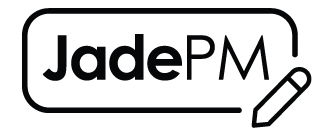Interested in learning about different project management practices? Register your interest in JPM’s Agile project design & delivery course below, or read about agile vs predictive project management, modern project management tools and the differences between project management vs product management vs operations on this page.
Agile vs predictive vs hybrid projects
In today’s digitally-focused environment, agile and incremental project approaches have gained popularity due to their customer-centric nature and flexibility. However, it’s good to recognise that predictive (waterfall) methodologies still have their place, especially in projects with strict regulatory requirements or fixed constraints, such as large infrastructure projects or large-scale events.
The trend towards hybrid approaches reflects a growing recognition that no single methodology fits all projects or business contexts. By combining elements of predictive planning with agile principles of testing, adaptation, and collaboration, businesses can create a tailored approach that meets their specific needs.
Ultimately, the goal is to select and adapt a methodology that enables efficient project delivery while meeting customer needs and business objectives. As the project management landscape continues to evolve, flexibility and a willingness to adopt new approaches is key for any business.
| Overview | Predictive / waterfall | Agile / incremental |
|---|---|---|
| Summary | •Follows a linear sequence: planning, execution, testing, and closure •Each phase is completed before moving to the next •Emphasises detailed planning and documentation upfront •Measures trends in planned vs actual work completed | •Embraces iterative, adaptive planning •Fosters flexibility and collaboration among teams •Prioritises responding to change over following a plan •Emphasises the application of principles rather than process •Focuses on value add outcomes |
| Methodologies | •PMBOK •Prince2 | •Scrum •Kanban •XP (Xtreme Programming) |
How to pick a framework?
| Predictive / waterfall | Agile / incremental | |
|---|---|---|
| Timeline | Fixed with hard dependencies | Flexible |
| Requirements | Clearly defined requirements with low uncertainty | Will change over time based on input from the customer |
| Budget | Fixed budget, strict contractual obligations and payment milestones | More flexible |
Modern project management tools
Modern project management software developed for use in agile projects can provide great efficiencies by minimising the administrative overhead typical of predictive-style projects. Unlike predictive projects that require detailed project plans and reporting, agile tools emphasise ‘working’ plans that focus on detailed planning only in the shorter term, leaving flexibility for planning to evolve with the project.
Most of the top project planning tools provide similar features with options for a limited free licence, giving you flexibility to try out different tools and find the right one for your business.
| Tool | Best suited use | Limitations of free licence | Subscription costs start from |
|---|---|---|---|
| Asana | Team collaboration, task management, workflow automation | Limited to 15 users, basic features only | $10.99 per user/month (billed annually) |
| Jira | Agile software development, bug tracking, product management | Up to 10 users, limited features | $7.50 per user/month (for up to 10 users, billed annually) |
| Trello | Visual task management, personal productivity, small team collaboration | Limited integrations, 10 boards per workspace | $5 per user/month (billed annually) |
| Monday.com | Customisable workflows, marketing, sales, HR processes | Limited to 2 users, 1000 items, basic features | $8 per user/month (for 3+ users, billed annually) |
| ClickUp | All-in-one project management, task tracking, docs & wikis | 100MB storage, limited features | $5 per member/month (billed annually) |
Project management vs product management vs operations
Project management, product management, and operations share some similarities, and in smaller businesses the lines between these functions can often blur, however they each serve distinct purposes.
Project management focuses on the planning, execution, and completion of specific, time-bound initiatives. A project manager oversees timeboxed efforts that aim to deliver a unique product, service, or result. The role requires a structured approach and is responsible for balancing scope, timeline, and budget while coordinating teams and stakeholders to achieve a defined objective.
In contrast, product management is more focused on the ongoing development and lifecycle of a product. Product managers are responsible for understanding customer needs, defining product vision, and aligning teams to develop a product that fits market demands. Unlike a project manager working on a time boxed project, a product manager’s role is continuous, involving market research, product strategy, and road mapping to enhance features or address user feedback. Sometimes project managers will work alongside a project manager in the development of a product for a discrete period.
Operations involves managing the day-to-day activities that keep the business running smoothly, focusing on processes, systems, and resources that support delivery of goods or services. Unlike project management, which is finite, operations are ongoing, and unlike product management, which is more externally focused on market needs, operations are internally focused, ensuring that the business functions effectively on a continuous basis.


